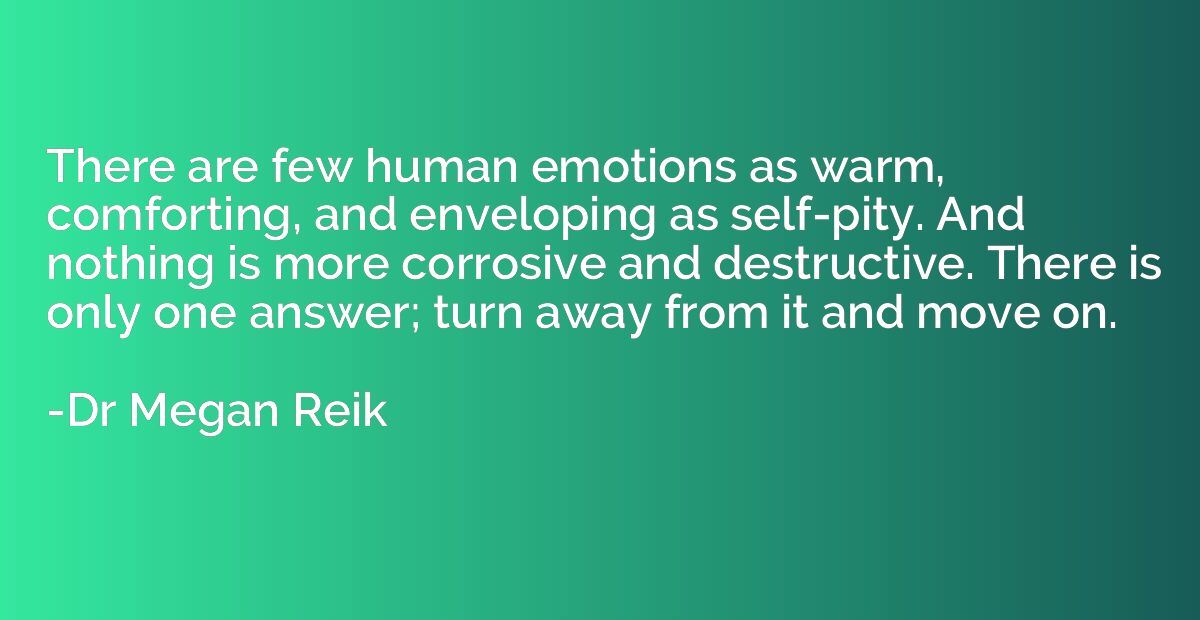Quote by Dr Megan Reik
There are few human emotions as warm, comforting, and enveloping as self-pity. And nothing is more corrosive and destructive. There is only one answer; turn away from it and move on.

Summary
This quote highlights the paradoxical nature of self-pity. While it may initially provide a sense of comfort, it is ultimately detrimental to one's well-being. Self-pity can consume and erode a person's motivation and resilience. The quote suggests that the only way to overcome this destructive emotion is to consciously reject it and choose to move forward with one's life, leaving self-pity behind. By encouraging individuals to turn away from self-pity, the quote emphasizes the importance of resilience and the pursuit of growth and happiness.














